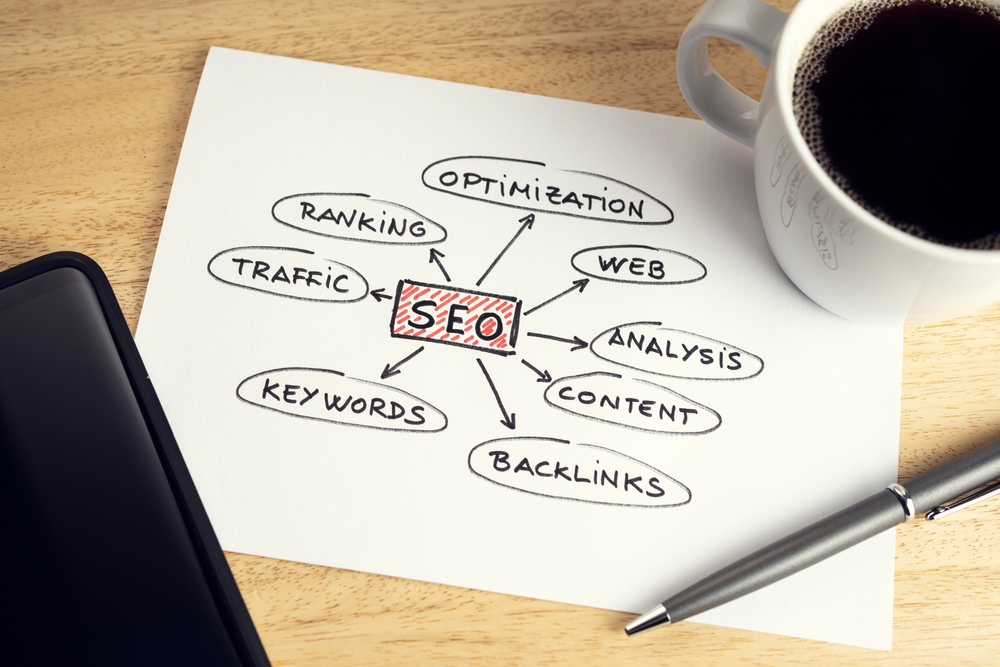
Boost Your Website's Visibility and Rankings with Top SEO and Link Building Hacks

In the overcrowded digital landscape, it's becoming increasingly challenging for websites to stand out and be seen by their target audience. Search engine optimization ( SEO/SEM ) and link building are essential strategies to improve your website's visibility and rankings on search engines. By implementing effective SEO and link building hacks, you can drive more organic traffic to your website, increase conversions, and ultimately achieve your business goals. In this article, we will explore some top SEM/SEO and link building hacks to help you boost your website's visibility and rankings.
1. Create High-Quality, Engaging ContentOne of the most critical aspects of SEO (search engine optimization) is creating high-quality, engaging content that meets the needs of your audience. Search engines prioritize websites that provide valuable information and a great user experience. Thus, invest time in conducting keyword research to understand the search queries users are entering related to your industry. Incorporate these keywords strategically in your content, but always prioritize a natural flow and readability over keyword stuffing.
Remember, content isn't just limited to blog posts or articles. You should also focus on creating engaging videos, infographics, and interactive tools that can attract and engage your audience. When your content is unique, informative, and shareable, other websites are more likely to link back to it, further enhancing your SEO (or SEM) efforts.
2. Optimize On-Page SEO ElementsOn-page SEO elements are the elements within your website's pages that impact their visibility on search engines. Optimizing these elements can significantly improve your website's visibility and rankings. Some crucial on-page elements include:
- Meta Tags: Craft compelling meta titles and descriptions that accurately convey the content of your web pages while enticing users to click through. Including relevant keywords in these tags can help search engines understand the content better.
- Header Tags: Properly structure your content using HTML header tags (H1, H2, H3, etc.) to make it more organized and scannable for both users and search engines. Include your target keywords in these header tags to provide additional context.
- URL Structure: Keep your URLs short, descriptive, and keyword-rich. A well-optimized URL can help search engines and users better understand what to expect when visiting your page.
- Image Optimization: Optimize your images by including alt tags that concisely describe the image content while incorporating relevant keywords. Properly compress and size your images to ensure fast page loading times.
3. Build High-Quality Backlinks
Backlinks are crucial for improving your website's authority and visibility. When other reputable websites link back to your content, it signals to search engines that your website is trustworthy and valuable. However, not all backlinks are created equal. Focus on acquiring high-quality backlinks from authoritative websites within your industry.
Here are a few effective strategies to build high-quality backlinks:
- Guest Blogging: Contribute valuable content to established industry blogs and include a link back to your website within your author bio or content. This not only helps you gain exposure to a new audience but also earns you valuable backlinks.
- Broken Link Building: Identify broken links on authoritative websites within your niche and reach out to the webmasters with a friendly notification. Offer your content as a replacement to the broken link, increasing your chances of earning a link back.
- Influencer Outreach: Connect with influencers and thought leaders within your industry and build genuine relationships. When they find your content valuable, they may voluntarily link back to it or share it with their audience.
4. Leverage Social Media for SEO
Social media has become an integral part of our lives, and it also plays a significant role in SEO. While social media signals may not directly impact search engine rankings, it indirectly influences your website's visibility. When your content receives a higher engagement on social media platforms, it increases the likelihood of attracting backlinks from other websites, generating referral traffic, and improving your brand's online reputation.
To leverage social media for SEO, optimize your social media profiles and posts with relevant keywords. Engage actively with your audience, share your content regularly, and encourage social sharing. The more your content is shared and engaged with, the more visibility it gains, ultimately leading to enhanced SEO benefits.
5. Focus on Mobile-Friendly OptimizationAs the majority of internet users access websites through mobile devices, optimizing your website for mobile is no longer an option, but a necessity. Search engines prioritize mobile-friendly websites, and responsive design is a key component of mobile optimization. Ensure your website adapts seamlessly to different screen sizes and resolutions, providing users with a consistent and user-friendly experience, regardless of the device they use.
Mobile optimization also extends to page loading times. Compress images, minify CSS and JavaScript files, and eliminate any unnecessary elements that hinder your website's loading speed. A fast-loading website not only makes for a better user experience, but it also positively impacts your SEO rankings.
Frequently Asked Questions
1. How long does it take to see results from SEO efforts?
SEO is a long-term strategy, and it takes time to see significant results. It depends on various factors such as the competitiveness of your industry, the quality of your SEO efforts, and the frequency of search engine algorithm updates. Generally, you can expect to start seeing noticeable improvements within six months to a year.
2. Are paid ads necessary for SEO success?
Paid ads are not necessary for SEO success. While both SEO and paid advertising have their benefits, SEO focuses on organic (non-paid) strategies to improve your website's visibility and rankings. It's a sustainable approach that can generate long-term results without the need for continuous ad spend.
3. How often should I update my website's content for SEO?
Regularly updating your website's content demonstrates to search engines that your website is active and continually providing fresh information. While there is no fixed frequency for content updates, aim to publish new content and update existing content at least once a month to maintain relevance and improve SEO.
4. Can I optimize my website for multiple keywords?
Yes, you can optimize your website for multiple keywords. It's essential to identify a primary target keyword for each page of your website and optimize the content around it. Additionally, you can include secondary keywords and variations of your primary keyword to provide more context and attract a broader range of search queries.
5. Do backlinks from social media have an impact on SEO rankings?
Backlinks from social media platforms, such as Facebook or Twitter, do not have a direct impact on SEO rankings. However, social media backlinks indirectly influence SEO by generating referral traffic, increasing brand visibility, and potentially leading to the acquisition of high-quality backlinks from other websites.
Conclusion
Implementing effective SEO and link building hacks is crucial for boosting your website's visibility and rankings. By creating high-quality content, optimizing on-page elements, building high-quality backlinks, leveraging social media, and focusing on mobile-friendly optimization, you can significantly improve your website's SEO performance. Remember, SEO is an ongoing process that requires consistent effort, but the long-term benefits are well worth it. So, start implementing these hacks and watch your website ascend the search engine ranks, driving more organic traffic and achieving your business goals.
Other useful resources
- https://en.wikipedia.org/wiki/Search_engine_optimization
- https://www.seoguru24.com/listing-category/seo-services/